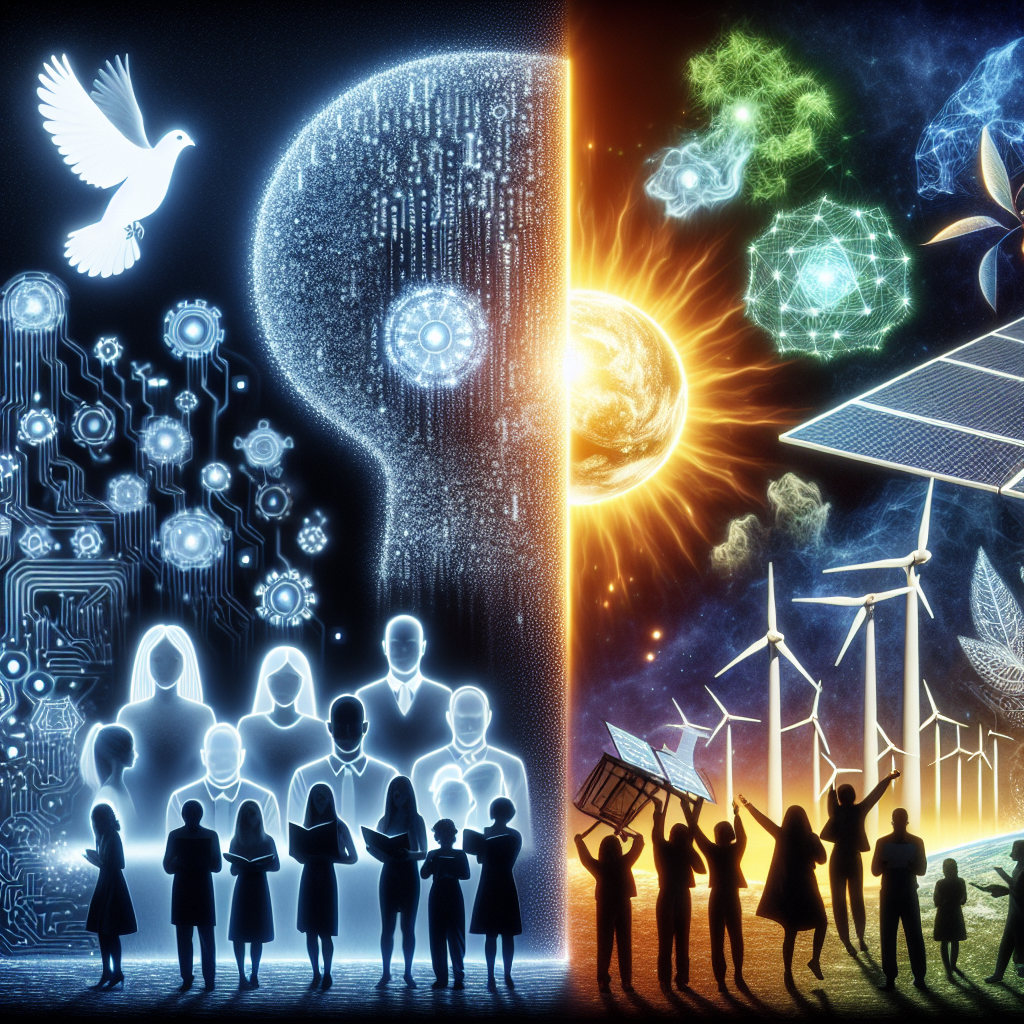The democratization of AI: The democratization of energy
In recent years, there has been a growing movement towards the democratization of artificial intelligence (AI) and energy. These two technological advancements have the potential to revolutionize industries and societies, but they have traditionally been controlled by a small number of powerful companies and governments. By democratizing AI and energy, we can empower individuals and communities to harness the power of these technologies for the greater good.
AI has the potential to transform industries such as healthcare, finance, transportation, and more. It can automate tasks, improve decision-making, and unlock new insights from data. However, the development and deployment of AI have been largely controlled by tech giants such as Google, Amazon, and Microsoft. This has led to concerns about data privacy, algorithmic bias, and the concentration of power in the hands of a few companies.
The democratization of AI seeks to address these issues by making AI more accessible to a wider range of users. This includes individuals, small businesses, and non-profit organizations. By providing tools, resources, and training, we can empower people to create their own AI applications and solutions. This can lead to more diverse perspectives, innovations, and opportunities in the field of AI.
Similarly, the democratization of energy aims to decentralize power generation and distribution. Traditionally, energy production has been dominated by large utilities and fossil fuel companies. This has led to environmental degradation, high costs, and limited access to clean energy sources. By democratizing energy, we can enable individuals and communities to generate their own power through renewable sources such as solar, wind, and hydropower.
One of the key technologies driving the democratization of energy is blockchain. Blockchain is a decentralized and secure digital ledger that can track energy transactions in real-time. This allows individuals to buy, sell, and trade energy directly with each other, bypassing traditional energy providers. Blockchain can also enable peer-to-peer energy sharing, where surplus energy from one household can be shared with neighbors in need.
Another technology that is transforming the energy landscape is artificial intelligence. AI can optimize energy production, storage, and consumption in real-time. For example, AI algorithms can predict energy demand, optimize grid operations, and automate energy trading. This can lead to lower costs, increased efficiency, and reduced carbon emissions.
The democratization of AI and energy go hand in hand. By combining these two technologies, we can create a more sustainable, efficient, and equitable energy system. For example, AI-powered energy management systems can help individuals and communities maximize the use of renewable energy sources, reduce energy waste, and lower their carbon footprint.
There are several challenges to overcome in the democratization of AI and energy. These include regulatory barriers, technological limitations, and societal resistance. However, there are also opportunities for collaboration, innovation, and positive change. By working together, we can create a future where AI and energy are accessible to all.
FAQs
Q: What are some examples of AI applications in the energy sector?
A: AI applications in the energy sector include predictive maintenance for power plants, energy forecasting for grid optimization, and demand response for load management.
Q: How can individuals and communities benefit from the democratization of AI and energy?
A: Individuals and communities can benefit from lower energy costs, increased energy independence, and reduced environmental impact.
Q: What are some challenges to the democratization of AI and energy?
A: Some challenges include regulatory barriers, technological limitations, and societal resistance to change.
Q: How can blockchain technology help democratize energy?
A: Blockchain technology can enable peer-to-peer energy trading, decentralized energy markets, and transparent energy transactions.
Q: What are some ways to get involved in the democratization of AI and energy?
A: Ways to get involved include supporting renewable energy projects, advocating for policy changes, and investing in AI startups.

